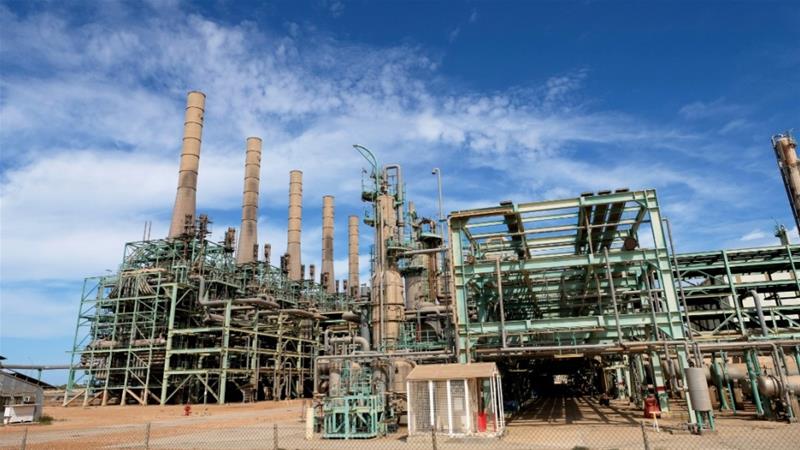
Oil prices jumped on Monday after two large crude production bases in Libya began shutting down following a military blockade, setting the stage for crude flows from the significant energy exporter to be cut to a trickle.
Tensions in Iraq also contributed to the jump in crude prices.
Brent crude futures were up by 75 cents, or 1.2 percent, to $65.60 by 01:09 GMT, having earlier reached $66.00 a barrel, the highest since January 9. The West Texas Intermediate (WTI) contract was up by 60 cents, or 1 percent, at $59.14 a barrel, after rising to $59.73, the highest since January 10.
In the latest development in a long-running conflict in Libya, where two rival factions have claimed the right to rule the country for more than five years, the National Oil Corporation (NOC) on Sunday said two big oilfields in the southwest had begun shutting down after forces loyal to renegade military commander Khalifa Haftar closed a pipeline.
If exports are halted for any sustained period, tanks for storage will fill within days and production will slow to 72,000 barrels per day (bpd), an NOC spokesman said. Libya has been producing about 1.2 million bpd recently.
“The situation there [eastern Libya] remains very chaotic. Four important oil terminals have been blocked by pro-Haftar protesters including armed groups and militiamen,” Al Jazeera’s Mahmoud Abdelwahed in Tripoli reported.
Also on Sunday, foreign countries agreed at a summit in Berlin on Sunday to shore up a shaky truce in Libya, even as the talks were overshadowed by the latest blockade.
German Chancellor Angela Merkel told reporters that the Berlin summit, attended by the main backers of the rival Libyan factions, had agreed that a tentative truce in Tripoli over the past week should be turned into a permanent ceasefire to allow a political process to take place.
“The oil and gas sector is the lifeblood of the Libyan economy and the single source of income for the Libyan people,” NOC Chairman Mustafa Sanalla said on Friday. “They are not cards to be played to solve political matters.”
“Prices are likely to remain capped, given the market’s reactive nature to fade geopolitical risk quickly,” Stephen Innes, Asia Pacific strategist at AxiTrader, said in a note.
In Iraq, security guards seeking permanent employment contracts blocked access to the al-Ahdab oil field, prompting a production halt, according to an official who couldn’t be identified, Bloomberg reported.
Protesters closed large roads in cities across Iraq, escalating their campaign for political change, as the clock ticked down the final hours to their deadline for the government to meet their demands for reform.
The spike in oil prices is a rational response to the news on Libya and reflect the jumpy nature of the market, but the temporary stoppage of production in Iraq is more significant, Michael McCarthy, chief market strategist at CMC Markets in Sydney, told Bloomberg. The $60 mark for WTI is providing “pretty solid resistance,” he added.
Oil prices surged earlier this month after Iran retaliated for the US killing of General Qassem Soleimani before retreating back to where they were in mid-December as the market shrugged off the threat of further disruptions. Members of the Organization of Petroleum Exporting Countries (OPEC) have spare production capacity after cutting supply to prop up prices, analysts say, while non-OPEC output is expected to climb this year, adding a buffer to potential outages.
